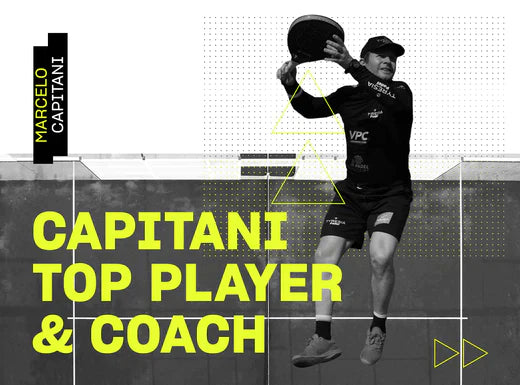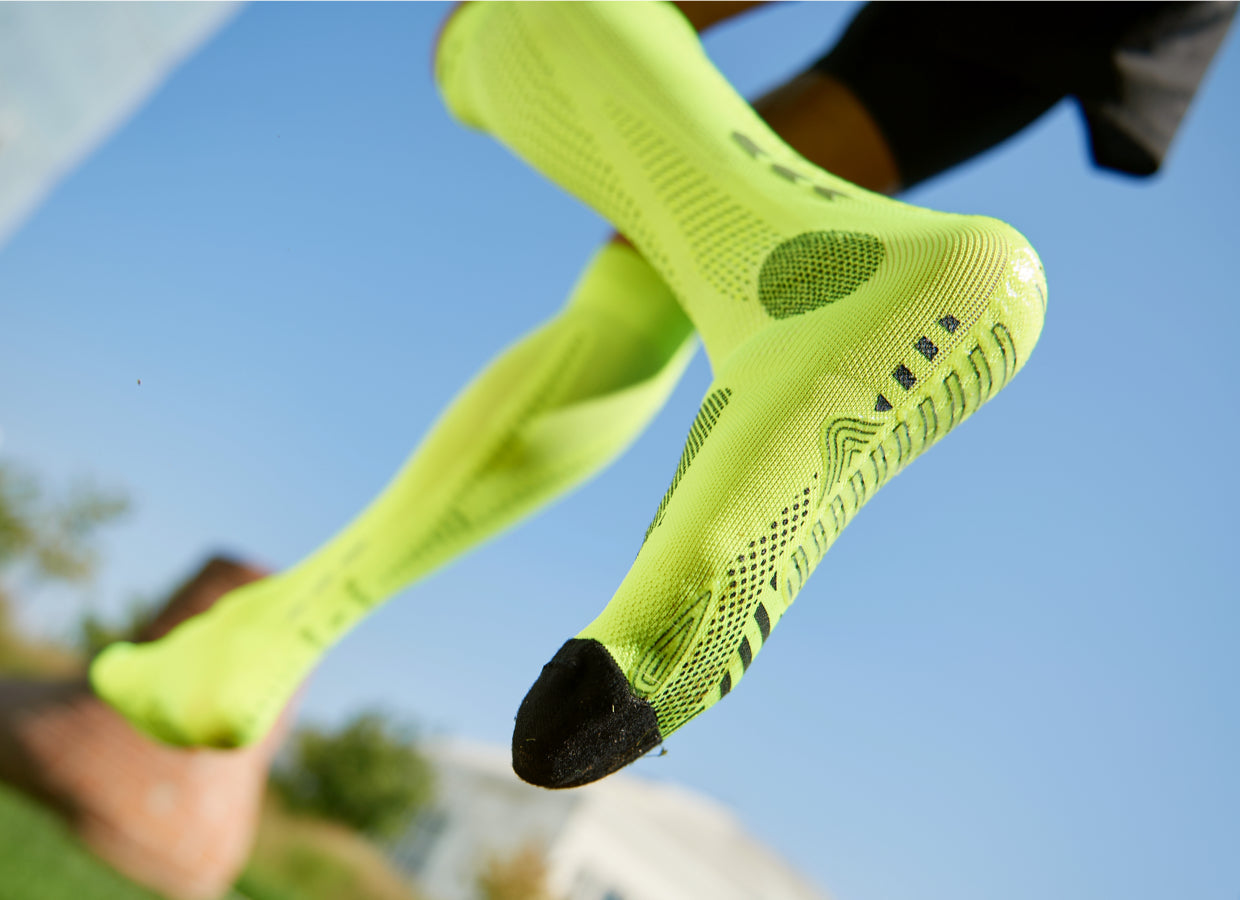At the age of 13 the first cross-country race, at 18 the first national titles and at 19 the baptism as a professional athlete in the Army Sports Center, which today also sees him as a coach: that of Marco Najibe Salami is a story of visceral passion for athletics, born from a very young age, cultivated in a career as a middle distance runner and steeplechase and reinvented, now, at the age of 36, with his debut in the marathon (fourth place overall and second in category at the 2021 Venice Marathon). A lifetime of achievements, victories and hard training.
To the Community FLOKY reveals all its secrets to prepare for a marathon, enjoy every kilometer in training and in the race and never give up.
What did it feel like to cross your first finish line?
They say "Will is power": for me it was all the more true when I won the race that led me to become a professional athlete. At the time I was working as a salesman. It was March, almost April, it was starting to get hot and I was no longer able to train during my lunch break as usual. I wanted to participate in a national championship and I asked and received from my boss 20 days off to go to the mountains to train. I entered the race, won the title and turned pro. It was a great victory: from a worker I became an "athletics worker".
You recently made your debut in the marathon. Why this change after a career as a middle distance runner?
I had almost stopped, I had given up: I had a bad injury and, at 36, I was now at the end of my career. I was starting to coach some young Army athletes. Then I met Piero Incalza, an athletic trainer, who told me that in his opinion I could still give something. I got back to training and started going strong again. I threw myself into the marathon because I wanted to demonstrate that I am a versatile athlete, capable of running fast both in the 800 meters and in the marathon: with my debut in Venice I can say I proved it. And I had FLOKY socks with me! I wore them for the first time in competition, without ever trying them on in training. Crazy! However after 42 km I had no blisters, I didn't feel the seams and I had no burns under my foot. A miracle! I fell in love with it, it felt like I had a shoe support. A sock is just a sock, FLOKY instead keeps my foot more stable, in trim.
What is your typical training day like?
I run 200 km a week, distributed between morning and afternoon. In Kenya, where I went to train at the Venice Marathon, I reached peaks of even 210-220 km, on dirt roads, ups and downs, long stretches, hills, stones, up to 2400 meters above sea level. I went to Kenya on purpose to look for difficult conditions, which would then allow me, once home, to concentrate on gathering the best possible performance. FLOKY socks give me great support, both in competition and in training, especially when my legs are tired, when I'm weak, when my tendons hurt. We marathon runners have so many pains and FLOKY helps me a lot in this. I always use them, precisely because they give me relief: they keep my tendons and muscles unloaded, avoiding me using the roller for hours or going to a physiotherapist every day. When a race approaches and I need to start unloading, i.e. lower myself to 150km per week, I use the Run Up Long or Short, even for post-workout recovery. In the race I switch to Run Up Medium.
In a race, especially one as long as a marathon, how do you overcome critical moments?
Running a marathon is tough. In the months leading up to the Venice match, my coach brought me to crazy mental stress: he created conditions of annoyance in training. For example, if I ran 30 km, one kilometer was on sand and one on asphalt. Or at the 22nd kilometer he would make a bicycle cut me off. Or again he put a slightly stronger runner in front of me to make me nervous. The first few times I got angry, I arrived exhausted, but that too is training. In a race, for example, it can happen that a distracted volunteer with the flag makes you take the wrong road, or that the runner in front of you drops your water bottle: in those situations you have to keep calm, you can't afford to get nervous. You have to find a solution to get out of it in the best possible way. And you prepare this thing in training.
And what's your favorite moment?
As a kid I suffered a lot from the race: the week before, like for a university exam, I went haywire, I forgot the workouts done, I lost conviction, I thought I wasn't ready. Now, as a mature athlete, the race is the moment I enjoy the most. I am aware of the work done and I trust myself: once I get there I don't get carried away by emotion, I remain rational and I know I'm ready. A thousand things can happen in a marathon and you can't keep everything under control, so it's pointless to get excited. Better to stay focused and not think about the final result.

What is the first thing that crosses your mind when you leave? And the latest arrival?
A lifetime passes before you get shot, you get a thousand doubts, but then you concentrate and think about bringing her home, in any way. Upon arrival, whether it goes well or it goes very well, you're bound to be happy: it can't go wrong, bringing home 42 km can only make you happy. Running a marathon is almost like writing a book: when you start you are holding an empty book, and from there on you write a story, anything can happen, everything can go great or everything can go wrong. At the finish you sometimes cry, but because you are nervous, because the tension of having held out until the end is released, you feel the satisfaction of not having given up despite the temptation to do so at every kilometer.
What would you say to a person who wants to approach this sport, even without having competitive aims?
I would advise him to do things in stages. Everyone starts directly from the marathon, because they have a romantic ideal. It would be good to go step by step: from 5 km to 10, then the half marathon and only at the end the marathon. It's important to get there well, gradually preparing the muscles. Running is something you do above all to let off steam, to feel good: doing things step by step allows you to continue it for a long time. If you get hurt, you risk carrying the damage around for a long time. The advice is to prepare for a marathon in no less than a couple of years, giving continuity to physical exercise.
What do you think shouldn't be missing in a marathon runner's training?
Nutrition is essential, more than the fatigue of training, because it is our fuel. Another important thing is hydration: learn to train trying to drink while running. For a marathon runner it is one of the most difficult things ever: every 5 km to take the bottle and drink while you are at a very high pace. It takes a lot of effort, sometimes it even makes you retch. Never show up for a race without trying to drink while training at a high pace, because it can create big problems. And then rest. When you have these workloads, if you lack sleep or if you don't recover properly it's like you're not working. It is often thought that a workout is only effective if you arrive at the end exhausted, but everything else around counts.
What is a cliché about athletics that you know from experience isn't entirely true?
One thing I have often heard is that the marathon should be done when you are of mature age. I disagree: as professional athletes, if you prepare well, you can do it even in your twenties. Relegating the marathon to the end of your career is limiting, it must be done right away to get used to the kilometres, especially if you are slow over short distances. Which is the opposite of what I recommend for an amateur! Another commonplace is that marathon runners slow down. Nothing more false! Those who run many kilometers learn to run them all and manage them well, without slow kilometers: the result is that it runs fast even in the shortest distances. We're seeing this in many pro athletes now that this taboo has been cleared of customs, so much so that we longtime athletes sometimes wonder where we'd be if we'd started running longer distances early.



